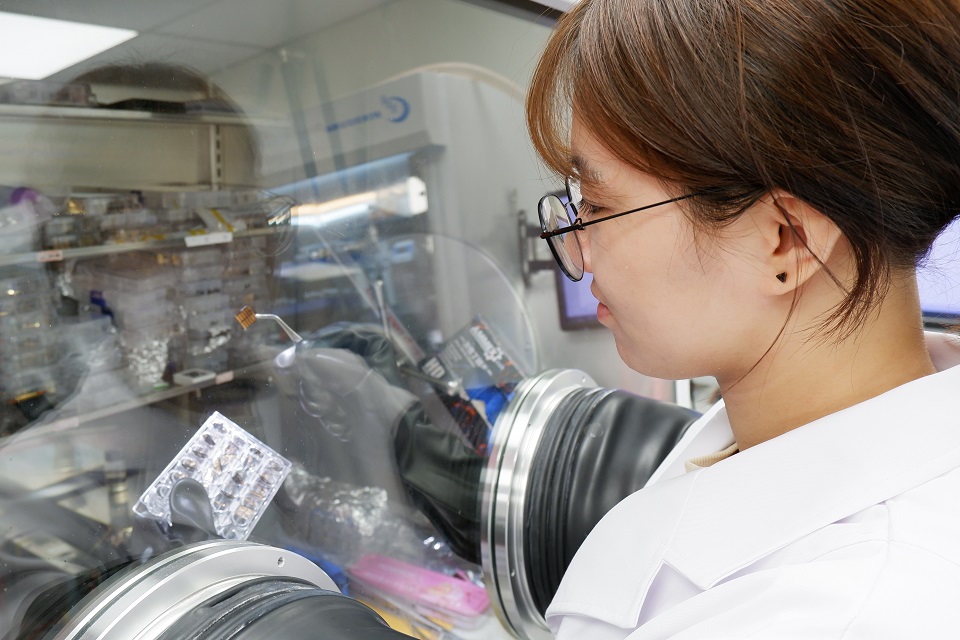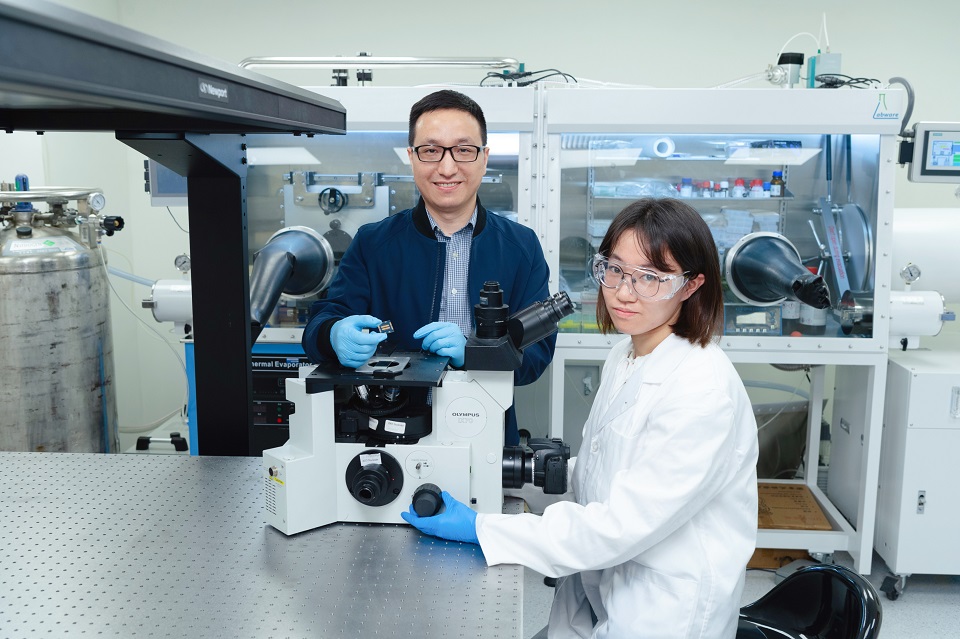Discover HKBU
A “Rising Star” physicist unlocks key to renewable energy
28 Apr 2023


Perovskites refer to a family of crystals with huge promise for energy conservation. Some have even called it a “miracle material”. With light absorbing properties, perovskite solar cells can also be easily made into thin film using solution printing, like newspaper. This makes the perovskite solar cell a high-performing candidate for manufacturing solar panels that are lightweight, thin and portable, and can be used for electricity generation anytime there is sunlight. In short, a vital solution to sustainable energy.
The catch is, perovskite is known to be chemically unstable. This has been a major obstacle for its commercialisation, and researchers worldwide have been trying to crack the code to improving the stability of perovskite solar cells and using them as a viable source of clean energy.
Ms Hao Mingwei, a Physics PhD student under the prestigious Hong Kong PhD Fellowship (HKPFS), has been working with Dr Alvin Zhou, Assistant Professor of the Department of Physics, to address this challenge. Together they identified a rarely discussed film microstructure that plays a crucial role in improving the reliability and performance of perovskite solar cells, making them a promising candidate for renewable energy applications, such as solar panels.
Their findings which have significant implications for the future commercialisation of perovskite have been published in the Advanced Materials Rising Star series, a series of by-invitation-only articles that showcase the outstanding work of recognised researchers in the early stages of their independent careers.
The life-saving habit called prioritising
As one of the masterminds behind this breakthrough discovery, Mingwei highlighted the complexity of this project as her major challenge. “The experimental techniques I was using required a high level of technical skills. I dedicated extra time to practising and refining my experimental skills and would constantly seek Dr Zhou’s guidance. Another challenge common to PhD students is time management. I had to juggle many responsibilities, from conducting experiments, attending classes and seminars to being a teaching assistant and writing papers. I can’t stress enough the importance of creating a detailed schedule and prioritising your tasks based on this schedule. This turned out to be a life-saving habit,” said Mingwei.
Mingwei’s fascination with physics has brought her from mainland China to Hong Kong, a place which offers her the international and academic exposure to thrive as an aspiring scientist. “Dr Zhou is my PhD supervisor and a world-renowned expert in the field of perovskite. He frequently discusses my experimental plans with me, and always provides timely assistance whenever I encounter problems. He is also keen to train us in our individual thinking processes and develop our transdisciplinary mindset when it comes to problem-solving. Dr Zhou’s team has a friendly and collaborative atmosphere, where members are always willing to help each other out. Postgraduate studies can take a toll on your physical and mental health if you don’t have a strong support system. I consider myself very blessed in this regard.”
Be genuine in your choice of studies
After completing the perovskite research project, Mingwei is now on an exchange programme in the United States. She offers this threefold advice to those who wish to pursue PhD studies: “Make sure you are genuinely interested in the research direction you choose. Pursuing a PhD requires a lot of research work, and without a strong interest in the subject matter, it can be difficult to sustain the necessary motivation and drive to complete the programme.
“Work hard and be dedicated. There will inevitably be setbacks and challenges along the way, but if you stay committed to your goals, you will eventually achieve them.
Mingwei stressed this last piece of advice: “Above all, maintain a good work-life balance. While it is important to work hard and put in the necessary time and effort to succeed in your PhD programme, it is equally important to take care of yourself and avoid burnout. Make sure you take breaks, engage in hobbies or other activities you enjoy, and spend time with friends and family. You need to protect your physical health and mental sanity, just as you would with your delicate lab experiments and their findings!”

